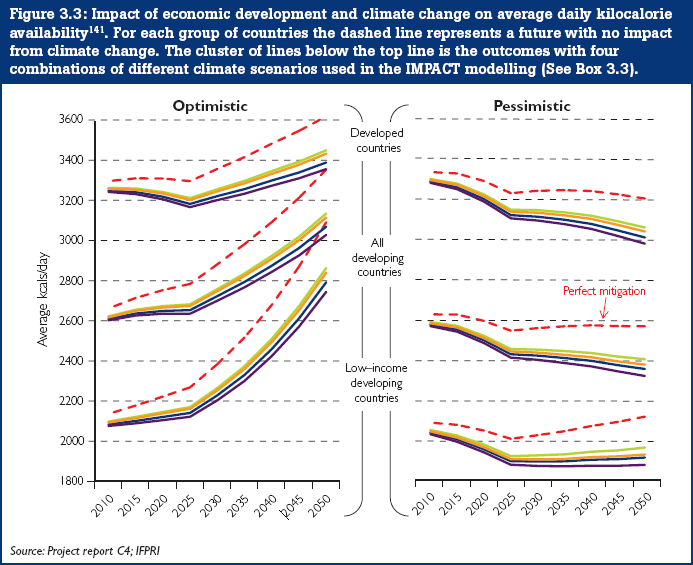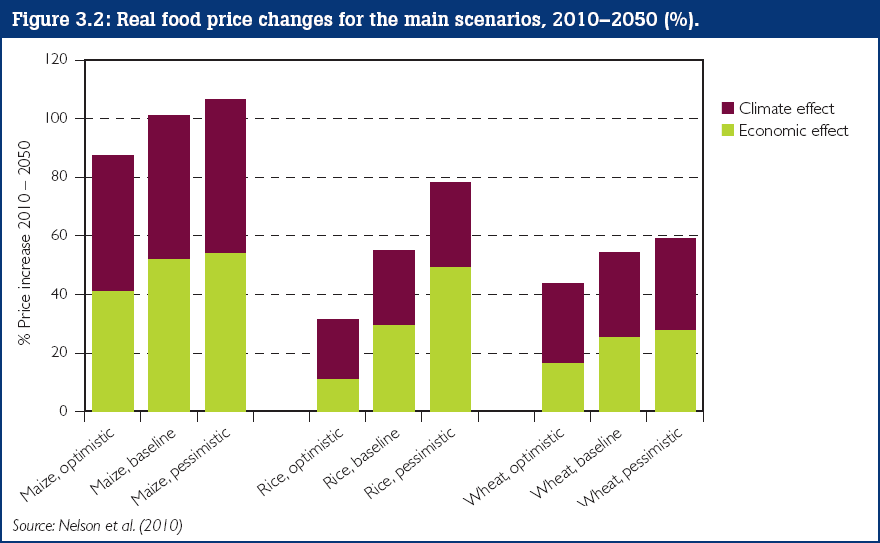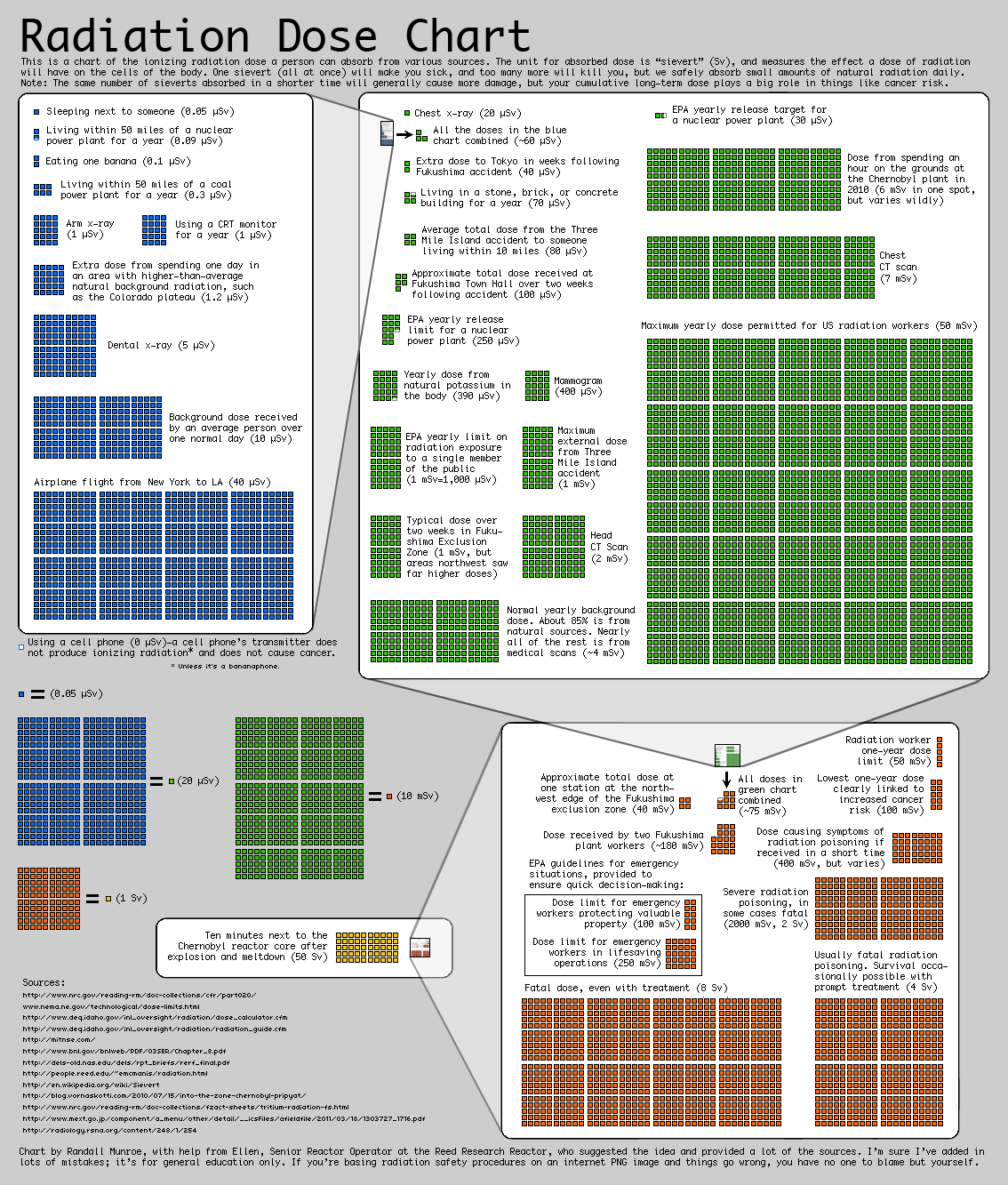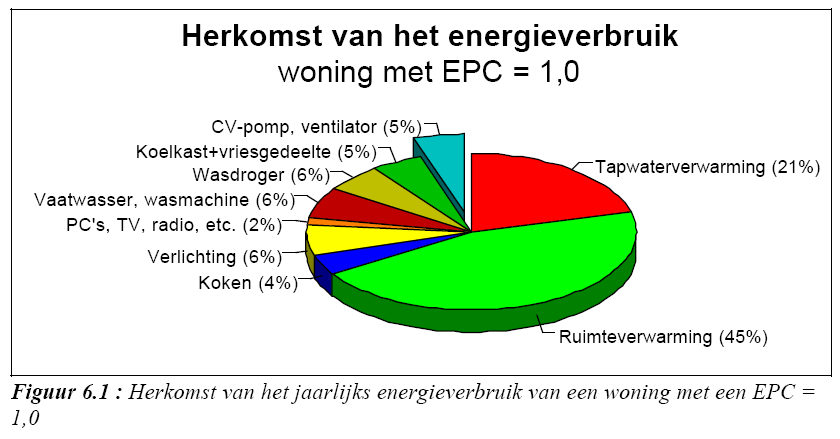The Government Office for Science in Londen published a report called "The Future of Food and Farming". A quick scan showes a mixed level of awareness of the real issues. It paints a picture of a world under stress from climate change and depleting aquifers, but nonetheless capable of providing food for the forseable future.
"Without change, the global food system will continue to degrade the environment and compromise the world’s capacity to produce food in the future, as well as contributing to climate change and the destruction of biodiversity. There are widespread problems with soil loss due to erosion, loss of soil fertility, salination and other forms of degradation; rates of water extraction for irrigation are exceeding rates of replenishment in many places; over-fishing is a widespread concern; and there is heavy reliance on fossil fuel-derived energy for synthesis of nitrogen fertilisers and pesticides. In addition, food production systems frequently emit significant quantities of greenhouse gases and release other pollutants that accumulate in the environment."
In spte of the above the report follows the well known path ignoring signals about unsustainalbe practices, and actually proposes to risk everything on new technology instead of sticking to simplistic tried and tested methods.
"Decisions about the acceptability of new technologies need to be made in the context of
competing risks (rather than by simplistic versions of the precautionary principle); the potential
costs of not utilising new technology must be taken into account."
Of course as is seen in many cases, the "cost of not using new technology" can only be guessed, and there is a strong incentive of the owners of the new technology to guess wrong. This is proven time and time again, ask any farmer.
Oil
The impact of oil prices on food prices is clearly aknowledged:
"Food prices can be strongly affected by shocks from outside the
food system, such as the oil crises of the early 1970s"
"production of nitrogen fertilisers is highly
energy-intensive: the roughly five fold increase in fertiliser price between 2005 and 2008 was strongly
influenced by the soaring oil price during this period"
But perhaps because the report strongly stresses the need for a transition to sustainable methods (mainly in light of greenhouse gas emission) and assumes the transition will be made without any (not even temporary impact) on food production the graphs show nothing of the effects of presently visible oil price volatility or reports of dwindling reserves. It does aknowledge the importance of oil prices (page 108) also on so called ‘price transmission’ meaning the existence of a world market. Also ‘inflexible biofuel mandates may exacerbate volatility in grain prices’, meaing what? that if oil can push out biofuels that’s better? There really is no evidence of an impact of biofuel crops on food prices. That is something different from saying they are a good idea. Methanol is a good idea. Why aren’t these factors visible below?

Food prices

This puts about 3 billion people at risk that live or $2.5 equivalent a day, as most of that money goes into food.
We really don’t get the meaing of below quote from page 76.
"A wellfunctioning global trade system acts to dampen negative impacts from regional demand and supplyside perturbations to the global food system. If countries react to supply or demand shocks with a protectionist response, limiting trade, the impacts on other countries are potentially serious, as economic theory would suggest. For example, if an exporting country suffers from a supply shock such as a drought and restricts exports in response, it can achieve temporary protection from increases in world prices, at the cost of exacerbating impacts on other countries through larger price increases and shortages in world markets"
It seems to say that if f.i. Russia had continued to export in spite fo a diseastrous harvest the markets would have been able to control prices? First of all, at what cost to whom? To future russian lives for selling a vital resource? Second of all, you want steep price increases because that gives farmers the money to invest in their farms and grow more. It seems the makers of this report have bought into the myth that merchants are more important than producers. That fluidity in the market is the key thing to want. It is only the key thing merchants want. The world does not need markets, it needs producers of food. Of course prices imply markets. How about we grow and don’t export?
Speculation
The capture of commoditiy markets by the financial system is something that is strongly denied:
"It has also been argued in some quarters that commodity speculation was an important causal factor.
Data imperfections, and the nature of the statistical tests that can be performed, make it impossible to
prove or disprove such arguments."
Yeah right.
Real Worries
My personal worry is that the end of oil/gas based fertilizer will leave much of the land dead and unproductive (if not also highlt poluted and saline) for at least 5 years until one can use if for organic farming. That production gap will happen if oil supplies tighten because noone is seriously working to create renewable fertilizer sources or transport fuel at the moment. The transition that is touted as necessary becomes harder with every barrel of oil wasted on the consumer marktet. A real food future report would have to take these factors into account and would not repeat the same suicidal technological optimism that has led us into our dire present environmental predicament.




